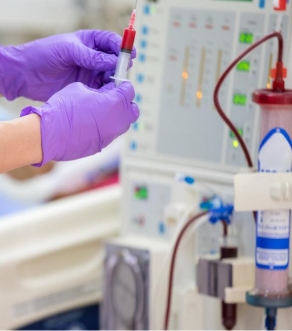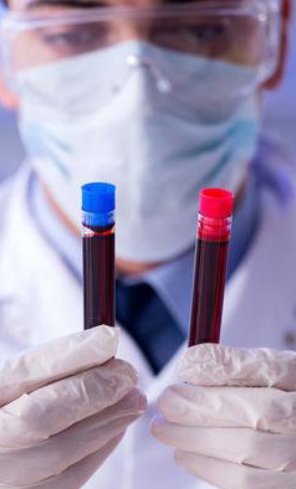Medical specialties
Centro Médico ABC’s Medicine Department has the following specialties:
Centro Médico ABC’s Medicine Department has the following specialties:
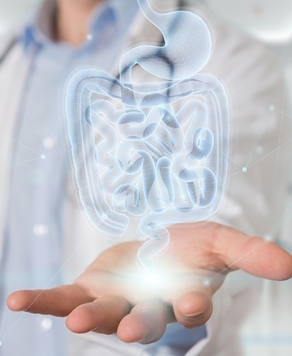
Gastroenterology
Gastroenterology is the medical specialty that deals with diseases of the digestive system; esophagus, stomach, pancreas, liver, small intestine, large intestine, colon, and rectum.
The most frequent diseases are:
- Acute and chronic diarrhea
- Constipation
- Irritable bowel syndrome (colitis)
- Gastroesophageal reflux
- Gastritis
- Pancreatitis
- Diverticulitis
Hepatology
Hepatology is a branch of gastroenterology that deals with the liver and its diseases.
The most frequent diseases are:
- Changes in blood tests that measure liver function.
- Acute and chronic hepatitis; viral (A, B, C), autoimmune, alcohol.
- Fatty liver.
- Liver tumors
- Cirrhosis, ascites, esophageal varices.

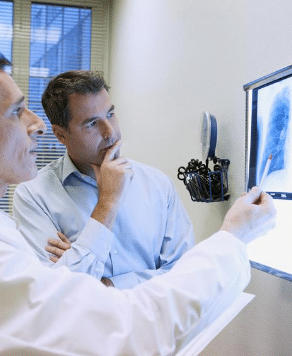
Pneumology
Among the increasingly prevalent respiratory diseases treated by pneumology we can highlight asthma, pneumonia, tuberculosis, sleep apnea syndrome, lung cancer, and diseases derived from smoking.
Pneumology is the medical specialty in charge of the study of respiratory system diseases.
- Pneumonia
- Immune Deficiency
- Tracheal tumor
- Lung tumor
- EPOC
- Chronic bronchitis
- Acute bronchitis
- Influenza
- Pleural tuberculosis
- Respiratory tract infection
- Tracheobronchitis
Various diagnostic-therapeutic procedures are performed such as:
- Bronchoscopy
- Foreign body extraction in bronchus
- Tracheostomy
- Lung Biopsy
Infectious Diseases
Infectious Diseases is an overly broad specialty of internal medicine that deals with the diagnosis and treatment of countless infectious diseases caused by viruses, bacteria, parasites, and fungi.
The most frequent diseases are:
- Respiratory infections, pneumonia
- Gastrointestinal infections
- IVU
- Sepsis
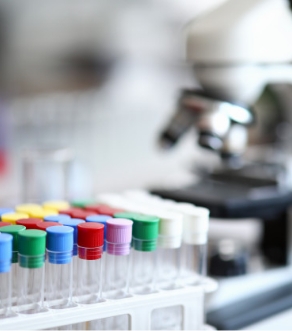
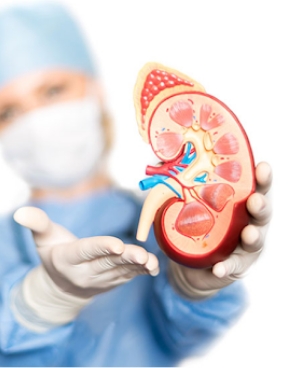
Nephrology
Nephrology is the medical specialty that studies the kidneys’ anatomy and their functions. Its field is the prevention, diagnosis, and treatment of kidney diseases and their consequences, which in summary is:
- HT and vascular damage
- Hematuria (blood in the urine), proteinuria (protein in the urine)
- Urinary infections
- Diseases that produce kidney stones
- Diseases that cause inflammation in the kidney (Nephritis)
- Diseases in other organs, in the immunity and treatments that affect the kidneys
- Treatment of the consequences of impaired kidney function: anemia, lack of bicarbonate, increased phosphorus
- Follow-up of Chronic Renal Insufficiency in office visit (ERCA)
- Dialysis treatment: Hemodialysis and Peritoneal Dialysis
- Prior, immediate, and post-renal transplant care
- Nutrition of kidney failure in all its phases
- Renal Biopsy for the diagnosis of kidney diseases
- Placement of vascular access to perform Hemodialysis (catheters)
- Special blood purification techniques: plasmapheresis, granulopheresis, leukapheresis, LDL apheresis, etc.
Medical surveillance of kidney transplant
It is a specialty that covers a wide field of medicine and requires the Nephrologist to have a broad and solid training not only in what is typical of its specialty, but also in those specialties with which it is closely related: Cardiology, Endocrinology, Gastroenterology, and Urology, among others.Contact a specialist
Hemodialysis
In hemodialysis, blood is pumped through soft tubes to a dialysis machine. Inside the kit is a special filter called a dialyzer (also called an “artificial kidney”). The dialyzer lets waste and extra fluid go through, but keeps important things the body needs, like blood cells and nutrients.
The waste and extra fluids are carried into a cleaning fluid inside the dialysis machine (called “dialysate”), and the clean blood flows back to you. There is only a small amount of blood outside the body at any given time. On average, the process takes four hours. Most people take the treatment three to four times a week. While your hemodialysis treatment is taking place, you can read, sleep, and even watch television.
To connect to the dialysis equipment, you must have an access, or entry, to your bloodstream. This is done through minor surgery, which is usually done on the arm. This access is permanent while you are on dialysis.
If you need dialysis before the access heals, a temporary access is placed in your neck or groin. Your healthcare team will teach you how to care for your access.
There are three types of access in hemodialysis:
Fístula
A fistula is the recommended option for an access. It is done by joining an artery to a nearby vein under the skin to form a larger blood vessel. This type of access is recommended because it has fewer problems and lasts longer. A fistula should be placed early (several months before starting dialysis) so that it has a long time to heal and is ready to use by the time you start hemodialysis. You must be evaluated by a special doctor, called a vascular surgeon, at least six months before starting dialysis.
Graft
If the blood vessels are not suitable for a fistula, a graft can be used. This involves joining an artery and a nearby vein with a small, soft, synthetic tube. The graft is completely under the skin.
Catheter
The third type of access, called a catheter, is placed in a large vein in the neck or groin. The ends of the tubes are on the skin, outside the body. This type of access is often used temporarily if a fistula or graft is not ready or if it needs repairs. Catheters can be used as a permanent access, but only when a fistula or graft cannot be placed.
What happens after the fistula or graft heals?
After the fistula or graft has healed and dialysis begins, two needles will be placed into your blood vessels each time you have treatment. The needles will then be attached to soft plastic tubes. A tube carries the blood from the needle to the dialyzer (the artificial kidney), where it is cleaned. The clean blood returns to you through the other tube.
How is my treatment monitored?
You will have monthly blood tests. These are especially important because they let your healthcare team know how well you are and if any changes need to be made to your diet, your medications, or even the amount of time you spend on the dialysis machine.
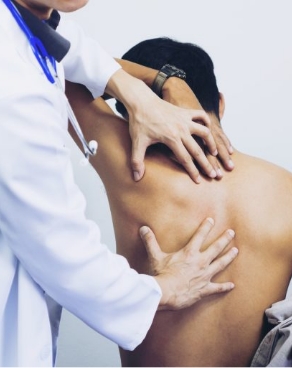
Rheumatology
Rheumatology is the medical specialty that is responsible for preventing, diagnosing, and treating systemic musculoskeletal and autoimmune diseases.
There are more than 200 rheumatic diseases. As a whole, these diseases affect one in four adults in Spain. They are the second cause of consultation, after acute respiratory infections, in Primary Care and the first cause of disability. In addition, musculoskeletal diseases are the ones that most deteriorate people’s quality of life, above lung and heart diseases.
Musculoskeletal diseases affect bones, muscles, and joints, as well as the tissues that surround them, and can cause pain, inflammation, stiffness, limitation of movement, and deformity. On the other hand, systemic autoimmune diseases, such as lupus, Sjögren’s syndrome, scleroderma, or dermatomyositis, can affect any organ of the body, such as kidneys, lung, skin, heart, or brain.
These diseases are usually chronic, so they require lifelong follow-up by the rheumatologist.
The most frequent diseases are:
- Low back pain
- Rheumatoid arthritis
- Knee arthritis
- Hand arthritis
- Fibromyalgia
- Osteoporosis
Endocrinology
Endocrinology is a discipline of medicine that studies the endocrine system and the diseases caused by its improper functioning.
Some of the diseases that endocrinology deals with are diabetes mellitus caused by insulin deficiency or resistance to its action, hypothyroidism due to deficit in the production of thyroid hormones, hyperthyroidism due to excessive production of thyroid hormones and Cushing’s disease generally due to excessive cortisol production by the adrenal glands.
- Diabetes
- Nutritional Alterations
- Osteoporosis and calcium disorders (bones)
- Pituitary, sexual, and adrenal gland disorders
- Thyroid disorders
- Medicine for transgender and intersex people
The body’s endocrine system includes pancreas, thyroid, parathyroid gland, pineal gland, hypothalamus, pituitary, and adrenal glands, in addition to ovaries and testicles. It also encompasses many other organs that respond to, modify, or metabolize hormones.Contact a specialist
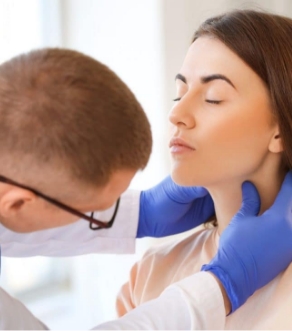
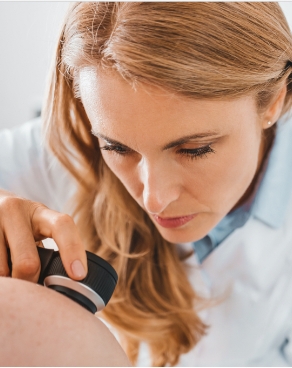
Dermatology
Dermatology is a specialty of medicine that deals with the knowledge and study of human skin and diseases that affect it.
Comprehensive care for people seeking answers about conditions and diseases of the skin, mucous membranes, hair, and nails.
Many skin problems are linked to other medical conditions, such as cancer and celiac disease. Therefore, skin disease experts work with many specialists (oncologists, surgeons, endocrinologists, neurologists, plastic, and reconstructive surgeons, among others) to provide the care you need for the whole body.Contact a specialist
Geriatrics
Geriatrics primary objective is to achieve the maintenance and functional recovery of the elderly person to achieve the maximum level of autonomy and independence. ,To achieve this, the participation of health personnel, the family, caregivers, friends, or close social nucleus is required. This purpose is complemented by other actions that together support the development of this specialty.
Geriatrics is the branch of medicine that is dedicated to studying the diseases that affect the elderly and their care. The geriatrician considers the clinical aspects and those that can help the treatment, prevention, and rehabilitation of the patient, integrating family and social aspects. It also provides tools for the care of the healthy or sick elderly person, in acute, subacute, chronic stages or in a terminal situation.Contact a specialist

ASK SANTA FE MANAGEMENT IF THEY WILL PUT SOMETHING ABOUT THE AGREEMENT WITH BELMONT VILLAGE LOCATED IN SANTA FE
ASK SANTA FE MANAGEMENT IF THEY WILL PUT SOMETHING ABOUT THE AGREEMENT WITH BELMONT VILLAGE LOCATED IN SANTA FE
Hematology
Hematology is the medical specialty that deals with the study, diagnosis, treatment, and prevention of diseases of the blood and the organs that participate in its production, such as bone marrow and the spleen or ganglia. It also deals with blood components (red blood cells, erythrocytes, platelets, leukocytes, hemoglobin, plasma, etc.) and its characteristics (coagulation mechanism, etc.)
Among the many diseases that hematology deals with, the following are worth mentioning:
- Leukemia.
- Lymphomas.
- Myelomas.
- Thrombosis.
- Bleeding diseases, such as hemophilia.
- Myelodysplastic syndrome.
- Anemia.
- Neutropenia.
- Thrombocytopenia
Hematology encompasses different activities in the hospital setting:
- Management and biological diagnosis in the laboratory of basic or special hematological determinations (blood tests).
- Biological and clinical diagnosis of disorders that cause bleeding or thrombosis.
- Medical care for patients with hematological diseases in all phases of the process.
- Performance of bone marrow transplants.
- Control of blood banks, the production of blood products and the safety of transfusions.
- Research and development of new procedures for the control of hematological diseases.
Hematologists and Rheumatologists send patients to apply medications as part of their treatment.
As part of your treatment for the application of medications, your specialist doctor may send you to the Santa Fe Infusion Center or the Observatory Oncology Center
As part of your treatment for the application of medications, your specialist doctor may send you to the Santa Fe Infusion Center or the Observatory Oncology Center
Where to Find Us
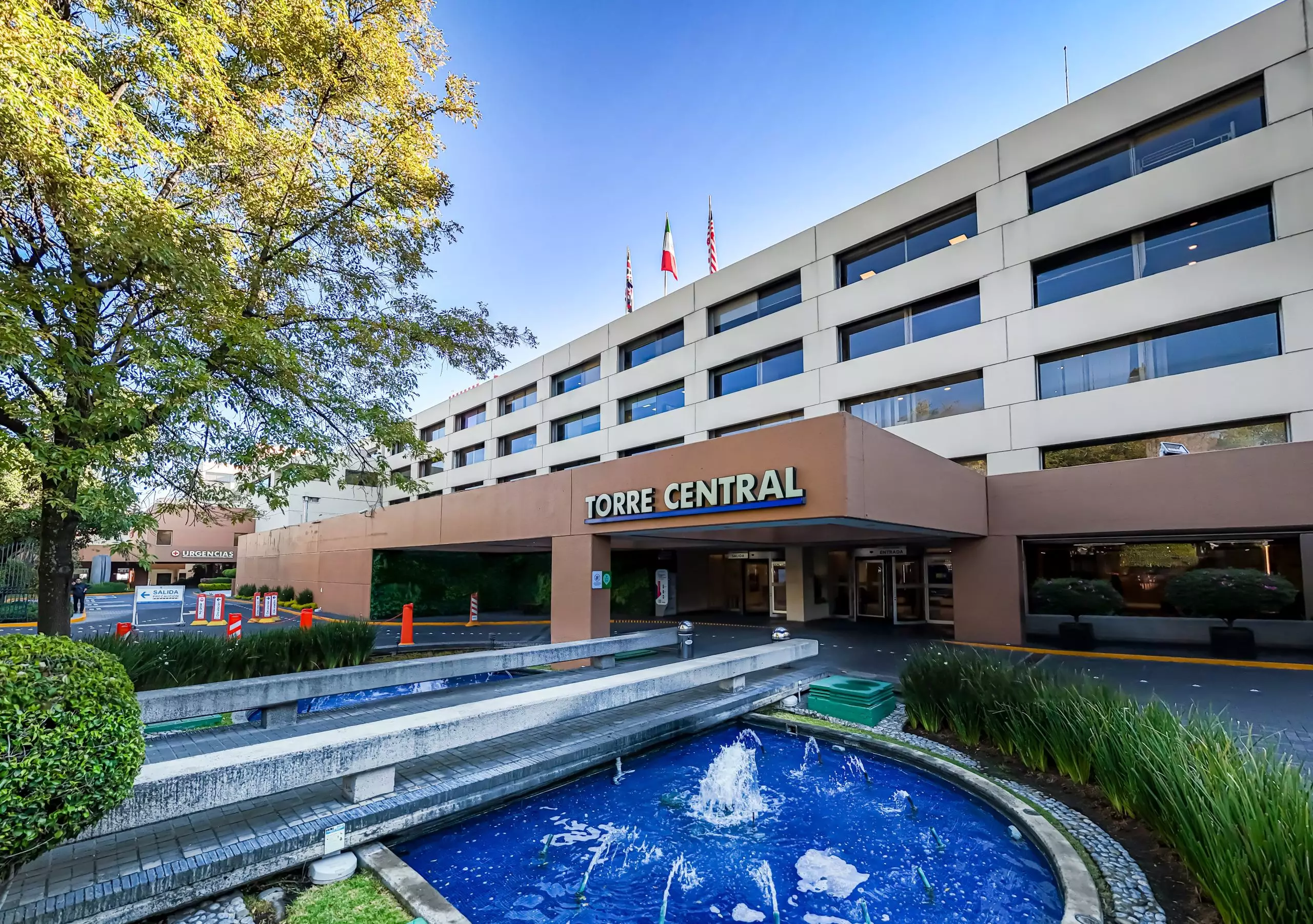
Campus Observatorio
Sur 136 No. 116, Col. Las Américas, Álvaro Obregón, 01120, Cd. de México.
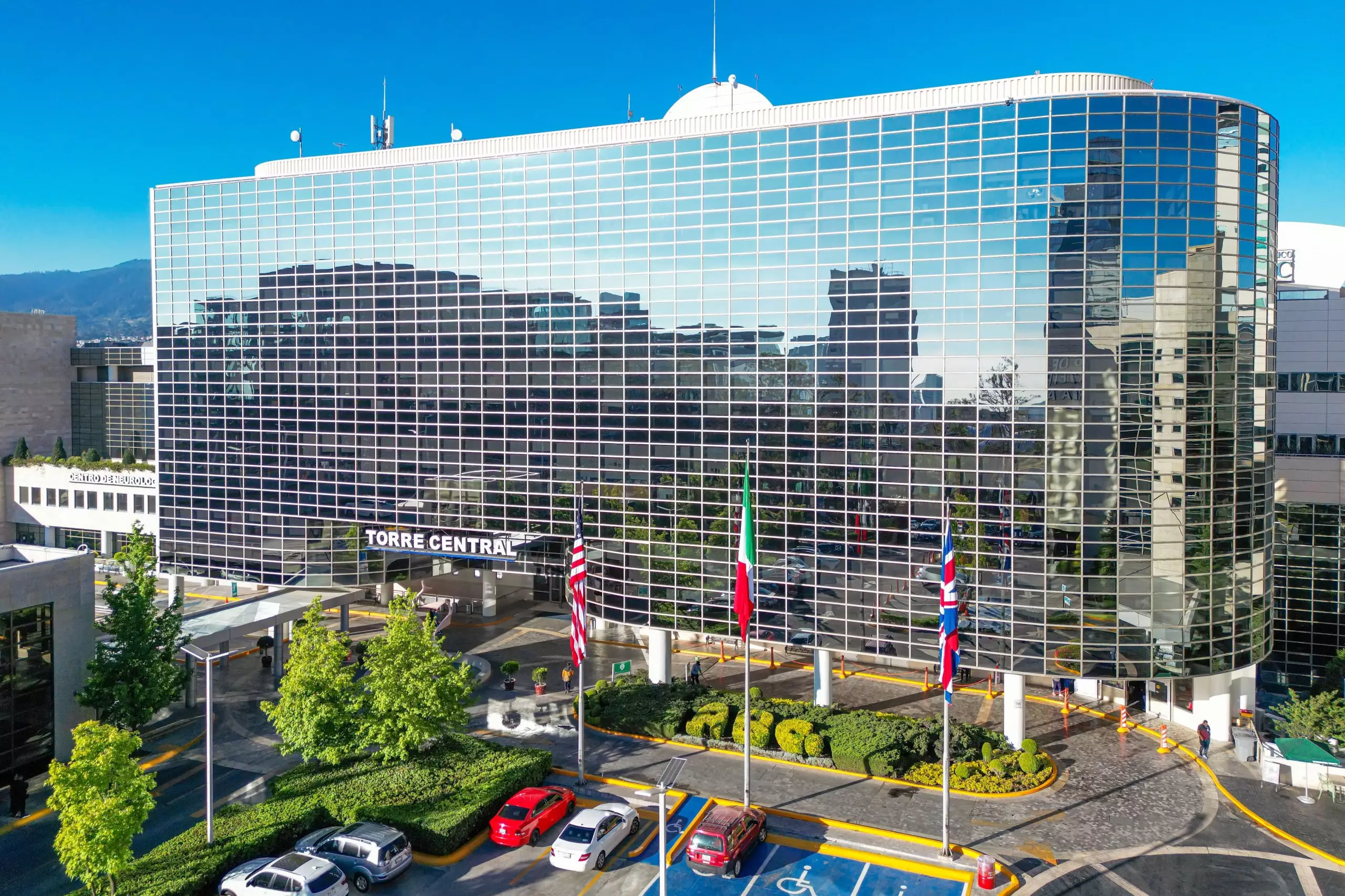
Campus Santa Fe
Av. Carlos Graef Fernández 154, Col. Santa Fe, Cuajimalpa, 05300, Cd. de México.



